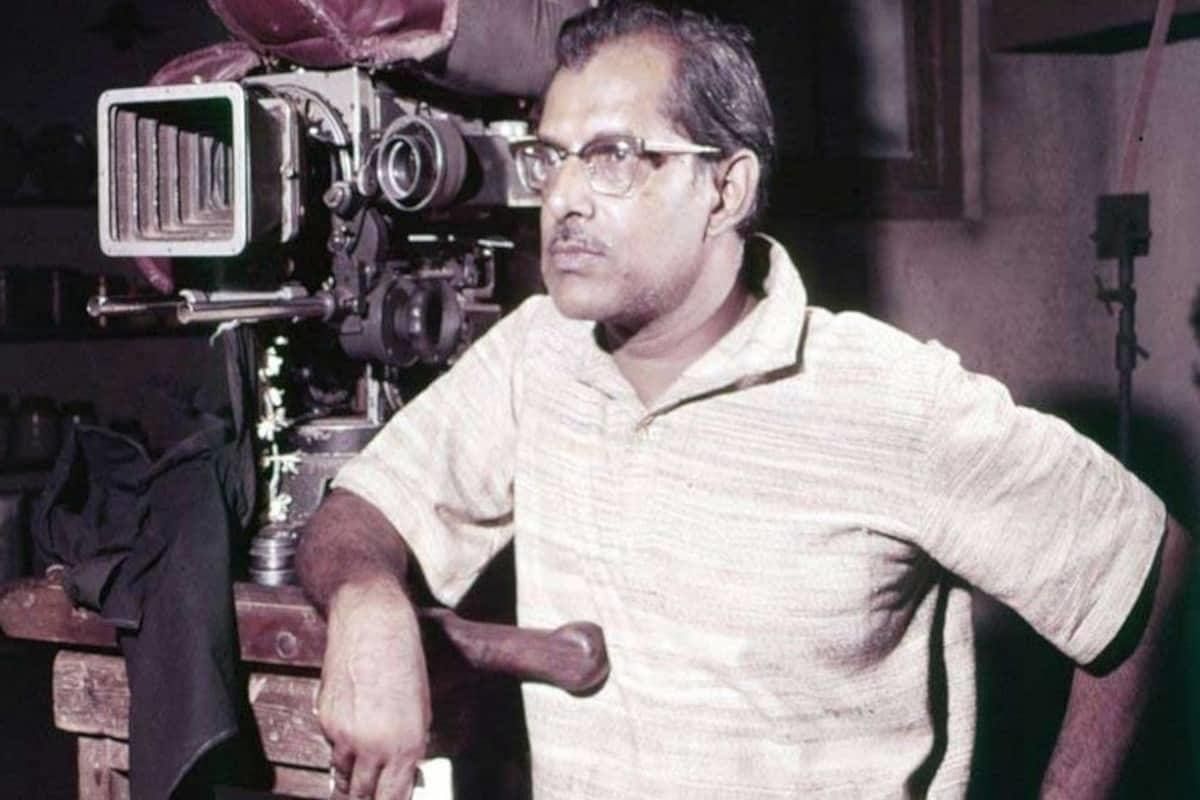
The centenary tributes to Hindi filmmaker Hrishikesh Mukherjee have been pouring in since September 30. He was an extraordinary director and editor, and above all, a magnificent and layered human being.
His timeless classics include his stunningly-offbeat debut 'Musafir' in 1957, 'Anari', 'Anuradha', 'Asli Nqli', 'Anupama', 'Aashirwad', 'Satyakam', 'Anand', 'Guddi', 'Buddha Mil Gaya', 'Bawarchi', 'Abhimaan', 'Namak Haram', 'Chupke Chupke', 'Mili', 'Gol Maal' and 'Khubsoorat'. Most of these films were hits and the rest critically acclaimed. His last film was 'Jhooth Bole Kauwa Kaate' in 1996.
Despite being trained in classical music, he considered songs unrealistic in his films. Yet he made sure most of his films had brilliant music, created by composers from Shankar-Jaikishan to Pt Ravi Shankar.
A Dadasaheb Phalke laureate and Padma Vibhushan winner, Mukherjee also edited classics like 'Do Bigha Zamin', 'Madhumati', 'Chemmeen' (Malayalam) and more until the blockbuster 'Coolie'.
Dharmendra would suggest his name as the editor to his filmmakers who had overshot. The veteran actor refused to take credit for this, saying, “Hrishi-da (as he was popularly known) was everyone’s darling. He was always ready to help out.”
Nitin Mukesh has fond memories of the director. “Raj Kapoor uncle and Hrishi-da were inseparable buddies. Raj uncle was a brilliant editor himself but he would show his edited print to Hrishi-da," he says.
Mukherjee once told me that 'Anand' was born as much out of the famous Epicurean philosophy as from his friendship with Raj Kapoor: “Raj fell seriously ill once and I could not imagine life without him,” he had said. 'Anupama' too was inspired by his cousin — whose father ill-treated her, deeming her responsible for his wife’s death during her birth.
Nitin was always inclined to be a singer but his father, Mukesh, a legendary singer, advised him to learn film direction. “My father gave me two names for inspiration — Raj uncle and Hrishi-da," he says.
For a director who made over 40 films, he believed a filmmaker could make only 15 films in his or her lifetime. The film he always considered his career-best, 'Satyakam' (1969), came later.
Mukherjee wasn't a fan of extravagant splurging. “If a film’s budget was Rs 50 lakh, he would finish it in 15 or less. Have you heard of any director who did this? Producers would beg him to spend more,” says Nitin.
Romu N Sippy, executive producer of many of Mukherjee's co-productions with his father NC Sippy, echoes Nitin's words. “He never forgot his roots. When at his peak, Hrishi-da would travel in second-class by train instead of taking a flight,” he says.
Romu heaped praise on Mukherjee's craft. “He alone knew a film inside out,” he says. “He would come to my father, who was in awe of him, and say he had decided to make a film with a specific cast. When 'Anand' had to be sent for the National awards in time, he sent a 8,000-feet long print. After the deadline, he shot the rest of the film as envisioned, and got the 12,000-feet version re-edited and re-censored,” he says.
Nitin spoke about his approach to direction. “Hrishi-da would write his shot divisions on a scribble-pad. Gulzar told me that it was very easy to work with him, because the thought for any scene was always Hrishi-da’s. All he had to do was translate what Hrishi-da had thought in Bengali into good Hindi lines,” he says.
Mukherjee had a knack of portraying the biggest stars as middle-class people to perfection, like Dharmendra in 'Chupke Chupke' or Sharmila Tagore in 'Anupama'. But few know that he had a temper that Nitin terms a five-minute storm, whose base lay in love.
Stars would approach him to work in his films. When Shashi Kapoor was being considered for 'Anand', Rajesh Khanna came to know of the film and approached Mukherjee, saying he would work for free. Recalls Nitin, “Hrishi-da gave him the Bombay territory—and Rajesh got the profits from the film’s business.”
The impish humour of the director was another special characteristic. “When assistants did something wrong, he would call us ‘assassins’,” laughs Nitin. And Dharmendra recalled that when Amitabh and he were perplexed about a sequence in 'Chupke Chupke', he told them, “If you had a story sense, would you be playing heroes in films?”
Reason enough why the master filmmaker was termed a “headmaster” by his stars!